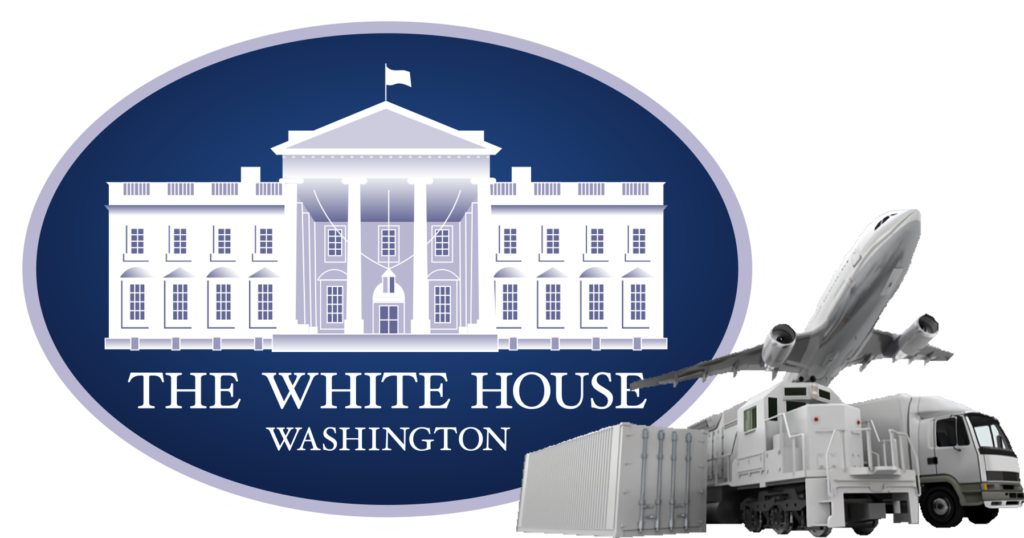Yesterday, President Joe Biden held the inaugural meeting of a new cabinet-level council focused on supply chain issues. Ahead of the meeting, the President indicated he would initiate nearly 30 new actions to strengthen America’s supply chains. According to the White House staff, “The Council will be co-chaired by the National Security Advisor and National Economic Advisor, and include the Secretaries of Agriculture, Commerce, Defense, Energy, Health and Human Services, Homeland Security, Housing and Urban Development, the Interior, Labor, State, Transportation, the Treasury, and Veterans Affairs; the Attorney General; the Administrators of the Environmental Protection Agency and the Small Business Administration; the Directors of National Intelligence, the Office of Management and Budget, and the Office of Science and Technology Policy; the Chair of the Council of Economic Advisers; the U.S. Trade Representative; and other senior officials from the Executive Office of the President and other agencies.”[1] Lael Brainard, Director of the White House National Economic Council and a co-chair of the new supply chain council, stated before the meeting, “We’re determined to keep working to bring down prices for American consumers and ensure the resilience of our supply chains for the future.”[2] As the White House staff noted, the other co-chair of the Council is the White House national security adviser, Jake Sullivan. In its announcement, the White House staff observed, “The Council … will support the enduring resilience of America’s critical supply chains.” One of the responsibilities the council has been tasked with is to complete a comprehensive review of the supply chain by the end of 2024.
Summary of Presidential Supply Chain Actions
Most of the actions the President intends to take involve government supply chains; however, commercial supply chains will also be impacted by some of the actions. According to the White House staff, the presidential actions include:
• Using of the Defense Production Act to make more essential medicines in America and mitigate drug shortages.
• Implementing new cross-governmental supply chain data-sharing capabilities, including:
* A new Department of Commerce Supply Chain Center to integrate industry expertise and data analytics to develop innovative supply chain risk assessment tools, and to coordinate deep-dive analyses on select critical supply chains to drive targeted actions to increase resilience.
* The Department of Transportation’s (DOT) Freight Logistics Optimization Works (“FLOW”) program, a public-private partnership that brings together U.S. supply chain stakeholders to create a shared, common picture of supply chain networks and facilitate a more reliable flow of goods. … As the effort continues to mature, DOT will work with the Department of Agriculture (USDA) to increase data transparency for containerized shipments of agricultural products in the United States, efforts that can help producers and sellers avoid disruptions that can increase food prices.
• Investing in critical supply chains:
* $275 million in Department of Energy (DOE) grant selections for its Advanced Energy Manufacturing and Recycling Grant Program, investments that will revitalize communities affected by coal mine or coal power plant closures through investment in clean energy supply chains, including production of critical materials, components for grid-scale batteries and electric vehicles, onshore wind turbines, and energy conservation technologies.
* Up to $10 million of DOE funding for a “critical material accelerator.”
* A $5.6-million DOE prize to develop circular clean energy supply chains.
* $196 million in USDA investments to strengthen our domestic food supply chains and create more opportunity for farmers and entrepreneurs in 37 states and in Puerto Rico.
• Publishing the first ever National Defense Industrial Strategy (NDIS). The NDIS will guide engagement, policy development, and investment in the defense industrial base over the next three to five years. It will ensure a coordinated, whole-of-government approach to and focus on the multiple layers of suppliers and sub-suppliers that make up these critical supply chains.
• Launching a quadrennial supply chain review. As noted above, the Council will complete the first quadrennial supply chain review by December 31, 2024. As part of the review, the Council will update criteria on industries, sectors, and products defined as critical to national and economic security.
• Creating a smart manufacturing plan.
• Deploying new capabilities to monitor existing and emerging risks:
* Creating a new Resilience Center and tabletop exercises for supply chain disruptions.
* Launching a DOT Multimodal Freight Office.
* Monitoring of climate impacts.
* Monitoring energy and critical mineral supply chain readiness.
* Mapping defense supply chains and risk management.
• Engaging public and private stakeholders to expand supply chain risk modeling:
* Convening a Supply Chain Data and Analytics Summit.
* Holding AI hackathons to strengthen critical mineral supply chains.
* Mapping risks associated with labor rights abuses.
• Deepening engagement with allies and partners to strengthen global supply chains, including:
* With the European Union: Strengthen an early warning system for semiconductor supply chain disruptions under the U.S.-EU Trade and Technology Council.
* With Japan and the Republic of Korea. Launch early warning system pilots, starting by identifying priority products and materials such as critical minerals and rechargeable batteries and establishing mechanisms to rapidly share information on disruptions to critical supply chains.
* With Mexico and Canada. Strengthen the trilateral Sub-Committee on Emergency Response to coordinate North American efforts to maintain regional trade flows during emergency situations.
* With Australia, Canada, the European Union, Japan, the United Kingdom, and the World Health Organization. Strengthen the Global Regulatory Working Group on Drug Shortages.
* With global partners, continue to fund activities to improve the weather, water, and climate observation capabilities and data sharing in regions and countries that are needed to produce actionable local, regional, and global climate information and minimize impacts upon infrastructure, water, health, and food security.
• Strengthening global supply chains through other innovative multilateral partnerships:
* Indo-Pacific Economic Framework for Prosperity (IPEF) Supply Chain Agreement.
* Americas Partnership for Economic Prosperity (Americas Partnership).
* North American Leaders’ Summit (NALS).
* Partnership for Global Infrastructure and Investment (PGI).
* Global Labor Directive.
* The Mineral Security Partnership (MSP).
* International Technology Security and Innovation (ITSI) Fund.
Concluding Thoughts
The supply chain challenges that emerged during the pandemic drew everyone’s attention. The commercial world has worked tirelessly to overcome many of those challenges and it’s about time governments caught up. Because 2024 is a presidential election year, there are no guarantees that the President’s new initiatives will last beyond his current term; nevertheless, the attention being given to supply chain activities is much needed.
Footnotes
[1] Staff, “FACT SHEET: President Biden Announces New Actions to Strengthen America’s Supply Chains, Lower Costs for Families, and Secure Key Sectors,” The White House, 27 November 2023.
[2] Josh Boak, “Biden will convene his new supply chain council and announce 30 steps to strengthen US logistics,” AP, 27 November 2023.





